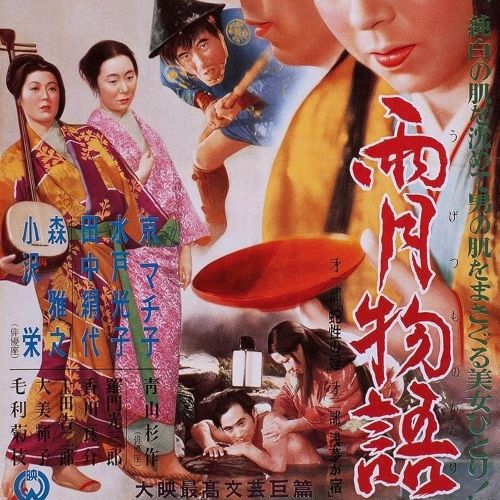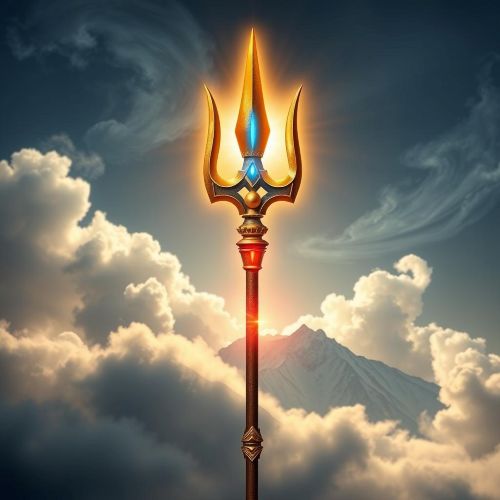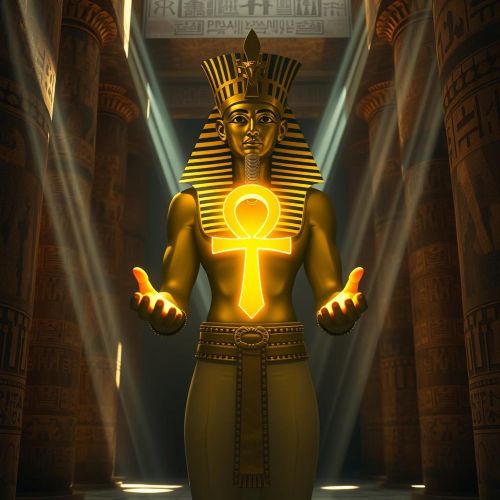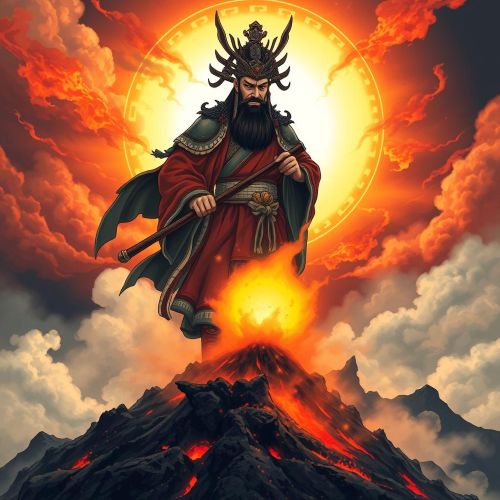Karna, Duryodhana, and Ashwathama: A Tale of Loyalty and Tragedy
In Indian mythology, the epic Mahabharata stands out not only for its grand narrative and complex characters but also for the relationships that define its core. Among these relationships, the friendship between Karna, Duryodhana, and Ashwathama is one of the most intriguing and profound. This trio’s bond, forged in loyalty, ambition, and shared destiny, adds depth to the epic’s exploration of human virtues and vices.
The Origins of the Bond
Karna: Born to Kunti and the Sun God, Karna was abandoned at birth and raised by a charioteer family. Despite his royal lineage, he faced lifelong scorn and rejection due to his perceived low birth. His talents and martial prowess, however, could not be denied, and he yearned for recognition and respect.
Duryodhana: The eldest Kaurava, Duryodhana, was driven by a fierce sense of entitlement and ambition. His animosity towards the Pandavas, particularly Arjuna, fueled his actions and decisions throughout the Mahabharata. Despite his flaws, Duryodhana was known for his unwavering loyalty to his friends and allies.
Ashwathama: The son of Dronacharya, the royal preceptor, Ashwathama was a formidable warrior. His bond with Duryodhana was partly rooted in their shared tutelage under Drona and their mutual disdain for the Pandavas.
The friendship between these three men began with a significant event: Karna’s humiliation at the martial exhibition where he was denied the chance to compete with the princes because of his low caste. Duryodhana, recognizing Karna’s potential and seeking a formidable ally against the Pandavas, crowned him as the king of Anga. This act of kindness and political astuteness marked the beginning of a lifelong friendship between Karna and Duryodhana.
Loyalty and Mutual Respect
The friendship between Karna, Duryodhana, and Ashwathama was characterized by deep loyalty and mutual respect. Each man found something invaluable in the others. For Karna, Duryodhana’s acceptance and support were a balm to his wounded pride and a path to the recognition he craved. In return, Karna’s unwavering loyalty and martial skills were invaluable to Duryodhana.
Ashwathama, on the other hand, found in Duryodhana a steadfast ally who respected his prowess and lineage. Their bond was further strengthened by their shared experiences and the tutelage they received from Dronacharya. The trio’s camaraderie was not just a matter of convenience but one of genuine affection and mutual reliance.
The Dark Side of Friendship
While their friendship was marked by loyalty, it also had a darker side, characterized by their collective ambition and moral ambiguities. Duryodhana’s relentless pursuit of power often led him down a path of deceit and unrighteousness. Karna, despite his virtuous nature and internal conflict, chose to support Duryodhana unconditionally, often compromising his own moral compass. Ashwathama’s loyalty to Duryodhana and his desire to avenge his father’s humiliation by the Pandavas led him to commit acts that stained his honor.
One of the most poignant examples of this is the infamous dice game, where Duryodhana, driven by jealousy and a sense of rivalry, orchestrated the disrobing of Draupadi. Karna’s harsh words and Ashwathama’s silent complicity in this act of humiliation highlight the moral complexities and failings within their friendship.
The Battle of Kurukshetra
The ultimate test of their friendship came during the great battle of Kurukshetra. Karna’s prowess as a warrior was a significant asset to Duryodhana, and he played a pivotal role in many key battles. Despite knowing his true identity as Kunti’s son and the elder brother of the Pandavas, Karna remained steadfast in his loyalty to Duryodhana. His sense of duty to his friend outweighed his familial ties, leading him to fight against his own brothers.
Ashwathama’s role in the battle was equally significant. As one of the eleven maharathis (great warriors) leading the Kaurava army, he was a key figure in the war. His loyalty to Duryodhana was evident in his ferocity on the battlefield and his determination to avenge the Kauravas’ losses.
The Tragic End
The end of the battle of Kurukshetra saw the tragic unraveling of this friendship. Karna was killed by Arjuna, aided by Krishna’s divine intervention, and his death marked a significant turning point in the war. Despite his valor and skill, Karna’s life was a tragic tale of unfulfilled potential and unwavering loyalty to a flawed cause.
Duryodhana’s defeat and subsequent death marked the end of the Kaurava dynasty. His unwavering ambition and refusal to compromise led to his downfall, but his loyalty to his friends remained steadfast until the end.
Ashwathama’s fate was perhaps the most tragic. In a desperate act of vengeance for Duryodhana’s defeat, he attacked the Pandava camp at night, killing the sleeping sons of the Pandavas. This act of treachery led to his curse by Krishna, condemning him to a life of eternal suffering.
Legacy of Friendship
The friendship between Karna, Duryodhana, and Ashwathama, while marked by loyalty and mutual respect, also serves as a cautionary tale. Their bond, rooted in shared ambitions and grievances, ultimately led them down a path of moral compromise and tragedy. However, their unwavering loyalty to each other, despite the odds, remains a testament to the complexities of human relationships.
In the grand narrative of the Mahabharata, their friendship adds depth to the epic’s exploration of dharma (righteousness) and adharma (unrighteousness). It reminds us that friendships, while noble and valuable, can also lead to one’s downfall if not guided by a strong moral compass.
The story of Karna, Duryodhana, and Ashwathama continues to resonate with readers and listeners, offering timeless lessons on loyalty, ambition, and the intricate web of human relationships. Their friendship, with all its virtues and flaws, remains one of the most poignant and powerful narratives in Indian mythology.
The bond between Ashwathama and Karna is especially notable. Their friendship predates their association with Duryodhana, and both warriors had little to gain from this bond, yet they connected due to similar circumstances. Aswathama, the son of a Brahmin, and Karna, the charioteer’s son, defied societal norms. They chose professions they loved rather than adhering to their prescribed roles. This shared rebellion against convention brought them together.
Their friendship was further solidified under Dronacharya’s tutelage. Although Dronacharya favored Arjuna, the connection between Ashwathama and Karna thrived on their shared experiences and mutual understanding of being outcasts in their own right.
This story of friendship is not only central to the Mahabharata but also remains relevant today, as seen in popular culture and cinema. The new Bollywood movie “Kalki 2898 AD” touches upon these timeless themes, drawing parallels between ancient bonds and contemporary narratives, showcasing how the essence of friendship and loyalty transcends time.
The friendship between Karna, Duryodhana, and Ashwathama remains a compelling aspect of the Mahabharata. It embodies the power of loyalty, the complexities of human relationships, and the consequences of choices made in the face of ambition and resentment. Their story serves as a reminder of the importance of questioning authority, prioritizing righteousness, and understanding the true meaning of loyalty.
How useful was this post?
Click on a star to rate it!
Average rating 5 / 5. Vote count: 1
No votes so far! Be the first to rate this post.
We are sorry that this post was not useful for you!
Let us improve this post!
Tell us how we can improve this post?






